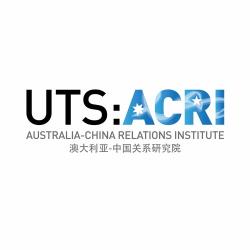This is the first in a series of podcast episodes UTS:ACRI will be releasing focusing on the COVID-19 pandemic and its impacts, within the context of the Australia-China relationship. The aim of this series is to provide timely and clear-eyed insights into a rapidly evolving situation.
Guest: Professor James Laurenceson, Director, Australia-China Relations Institute, University of Technology Sydney
Host: Elena Collinson, Senior Project and Research Officer, Australia-China Relations Institute, University of Technology Sydney
As the unprecedented public health impacts of the COVID-19 pandemic continue to permeate into both daily life and the broader currents of international affairs, it is clear that what began as an outbreak of a novel coronavirus in mainland China has mutated into a globalised ‘grey rhino’ event with significant second-order implications for the Australia-China relationship. In this special edition of the UTS:ACRI Podcast, UTS:ACRI Director Professor James Laurenceson discusses these implications amid concerns around the Australia-China economic relationship, which now sees exports to mainland China accounting for seven percent of Australia’s GDP.
An important piece of context is that despite political and diplomatic tensions, goods exports to mainland China in the year to January 2020 reached $150 billion. This was up 26 percent on the year to January 2019, with services exports growing by eight percent over the same period. This means that negative economic effects will be coming off a high base.
Nonetheless, there is no doubt that mainland China’s economy has been subject to significant disruption since January. While forecasting currently projects a severe contraction in the first quarter of 2020, the mainland Chinese economy is expected to recover to 4.5 percent GDP growth by December, a 1.5 percentage point decrease compared to the previous year. However, a weaker recovery cannot be ruled out, with some forecasts predicting much lower growth.
Testifying to this are official data from the People’s Republic of China (PRC) government such as purchasing manager’s indexes – measures of business sentiment and activity – which hit record lows in January and February, lower than market expectations and unofficial indexes.
The impacts of this downturn are likely to be felt unevenly across sectors of Australia’s economy as the relationship between mainland China’s economic growth and its demand for imports is not 1:1. An indicative case is that of PRC visitors flows to Australia, where heterogeneity between reasons for visiting mean that while tourist visitor numbers have been almost completely curtailed, a smaller proportion of visitors coming for education are affected, with 50 percent of student visa holders from mainland China onshore by March 1.
Finally, the COVID-19 pandemic has seen the revival of commentary arguing that Australia is economically ‘too dependent’ on the PRC. However, COVID-19 is clearly now a global shock rather than a PRC-specific one, meaning that while Australia’s exports to the mainland Chinese market will decline, so too will exports to other markets. Further, it is likely that mainland China will be the first major economy to recover, despite significant headwinds.
Summary written by Michael Zhou, Project and Research Officer, Australia-China Relations Institute, University of Technology Sydney.
Technical production by Amy Ma, Communications Officer, Australia-China Relations Institute, University of Technology Sydney.
Theme music by Sam J Mitchell.


